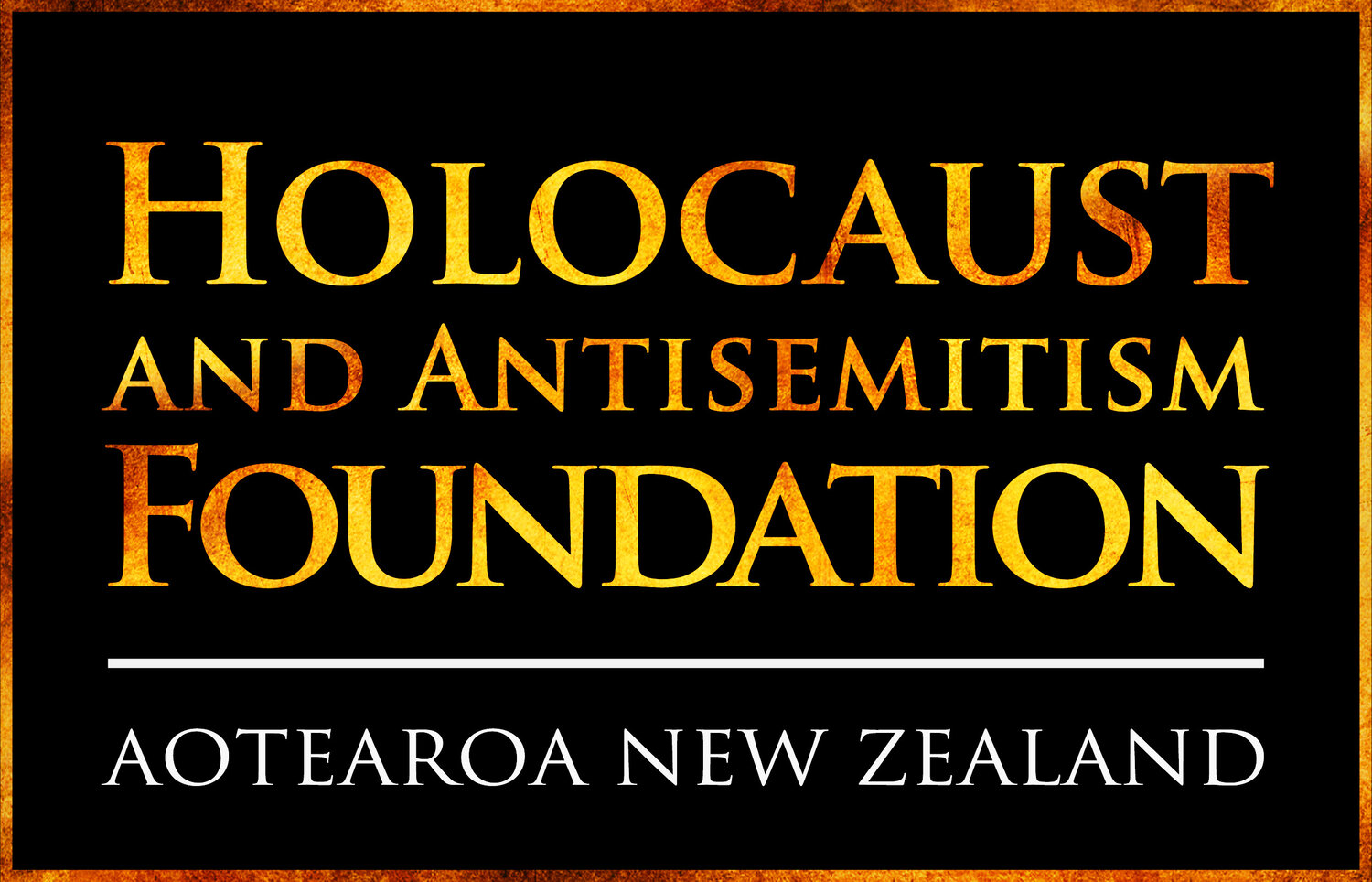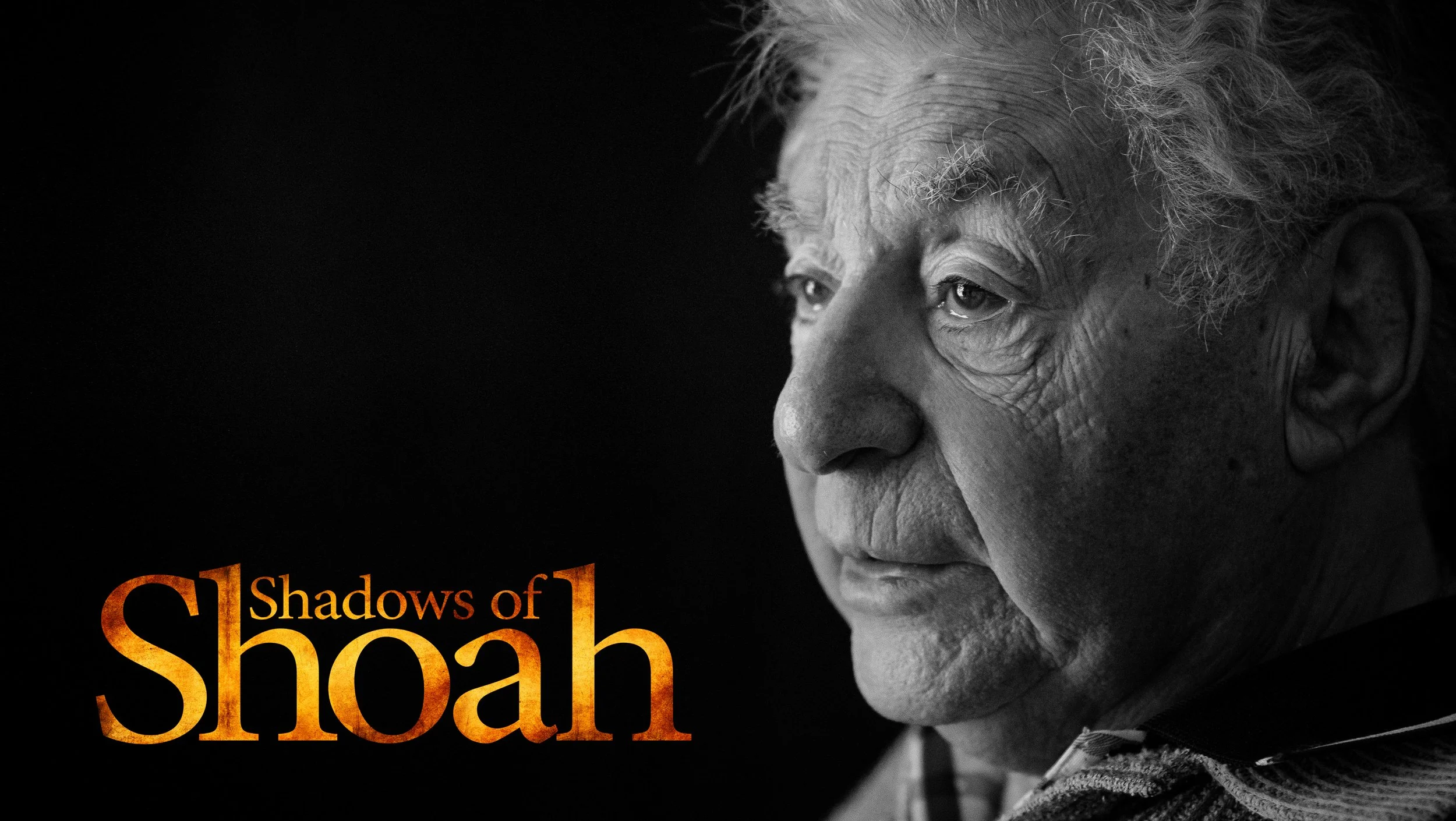The Blog of
Holocaust and Antisemitism Foundation Aotearoa New Zealand
Holocaust Foundation work shown in Berlin and Dubai
The Holocaust Foundation was pleased to receive a request for our stories to be shown in the pavilion and event at the Israel Expo in Dubai. Our work was also featured in Berlin at an important event commemorating the 80th anniversary of the Wannsee Conference.
The Abraham Accords have marked a new era in the Middle East and have had a profound and welcome impact on relations between Israel and a number of nearby Arab nations. Unprecedented economic cooperation has been widely reported but there have been significant developments in other areas also. Last week saw International Holocaust Remembrance Day events held in cities across the region, including Cairo, Abu Dabhi and Dubai.
The Holocaust and Antisemitism Foundation was pleased to receive a request for our stories to be shown in the pavilion and event at the Israel Expo in Dubai.
Our work was also featured in Berlin at an important event commemorating the 80th anniversary of the Wannsee Conference. The event was staged by European Coalition For Israel, a group that in 2005 initiated and hosted the first ever Holocaust Remembrance Day event in the European Parliament in Brussels, a year before the UN announced the official International Holocaust Remembrance Day. EC4I has used our Holocaust and Antisemitism Foundation stories at many of its events over the last decade.
EC4I director Tomas Sandell chose to use the story of Leo Pomeranz at the Berlin conference. Leo was born in Berlin in 1933 and spent nearly five years hiding alone in an attic. We interviewed and photographed Leo in 2016 in cooperation with Queensland Jewish Board of Deputies.
From AIJAC: Poignancy and controversy in Holocaust commemorations
“The memory of the Holocaust is under attack from many quarters – from deniers to those who would distort the history through re-writing, relativising and universalising.”
Originally published by AIJAC’s Australia/Israel Review
Six candles, each one representing a million of the Jewish people who perished in the Holocaust. Six young people, each one the grandchild of a survivor lighting a candle each. Around them, a 400 strong crowd watched in silence.
It was a poignant, highly evocative moment. And it was this moment that New Zealand Prime Minister Jacinda Ardern referred to as she began her address to those gathered at this year’s UN International Holocaust Remembrance Day event in Auckland on Jan. 27.
The fact that each of those candles represents one million lives lost is unfathomable, Ardern said. “It’s a horrific reminder of what happens when extremist ideology is unchecked and shows us what humans, unfortunately, are capable of when left unchecked.”
In a heartfelt speech, she emphasised that antisemitism is an assault against our shared humanity and has no place in our global society. “And yet we find ourselves in a world that seems to have forgotten the horrors of history.”
Ardern pointed to the defacing of Wellington’s Temple Sinai with antisemitic graffiti just a week before Holocaust Remembrance Day as an example. “This is not the legacy of a nation or the legacy of a world that has learnt and understands fully the impact of the Holocaust.”
For that reason, it is critical that work to educate and inform about the Holocaust continues both in New Zealand and overseas. Ardern said the work of the Holocaust Centre of New Zealand and Holocaust survivors “helps us to become the nation that we aspire to be”.
The Prime Minister’s presence at the event represented a stepping up in the official commemoration of Holocaust Remembrance Day this year. While former prime minister John Key launched the “Shadows of the Shoah” exhibition on Holocaust Remembrance Day in 2013, government representation at subsequent commemorations has been sparse.
However, this year the day also marked the 75th anniversary of the liberation of Auschwitz and, as such, was more widely recognised around New Zealand.
Besides Ardern, a number of government ministers attended commemorations. Minister of Ethnic Communities Jenny Salesa went to the Auckland event, Finance Minister Grant Robertson hosted an event at Parliament, and Minister of Housing Megan Woods attended the Christchurch event.
Additionally, National MP Alfred Ngaro, the chairman of the Israeli-NZ Parliamentary friendship group, attended several events, and various local government politicians turned out around the country.
While the improved recognition of the day was notable, the lead-up to the day also saw the Government hit by criticism for failing to send any representative to the Fifth World Holocaust Forum in Israel, one of the few Western nations not to do so (although New Zealand’s Governor-General Dame Patsy Reddy did send an official message to the forum which will be included in the commemorative publication).
Opposition MP Gerry Brownlee of the National Party described the non-attendance as disgraceful, while National Party leader Simon Bridges asked whether antisemitism was behind New Zealand’s absence.
Foreign Minister Winston Peters told the media that the Ministry of Foreign Affairs (MFAT) had advised him of the invitation just a week out from the event. Efforts were then made to send the Parliamentary Speaker, Trevor Mallard, but ultimately it was not possible to do so, he said.
MFAT confirmed that Peters’ office was not advised of the invitation until Jan. 16, despite the invitation having actually been received in September last year.
Israel Institute of New Zealand co-director David Cumin said the delay played a large role in New Zealand’s conspicuous absence. He also suggested it was, unfortunately, just the latest in a concerning pattern of behaviour from MFAT officials which puts New Zealand out of step with its traditional allies in regard to its relationship with Israel.
Holocaust & Antisemitism Foundation Aotearoa New Zealand co-founder Sheree Trotter said not sending an official representative showed poor judgement, but was also indicative of the broader issue of New Zealand’s problematic historical relationship with the Holocaust. Among the historical issues she cited was Wellington’s unwillingness to take significant numbers of Jewish refugees fleeing Nazi Germany, its decision not to prosecute suspected Nazi war criminals residing in New Zealand and the fact that one of New Zealand’s major universities holds a Holocaust denial thesis in its library.
She also added, “In recent years New Zealand has taken a hostile attitude towards Israel. Co-sponsoring UN Resolution 2334, which led to the withdrawal of the ambassador for several months, is just one example. We have no Embassy in Israel and the relationship continues to be uneasy. It’s hard not see a link between the attitude towards Israel and the lack of appreciation of the Holocaust.”
“The memory of the Holocaust is under attack from many quarters – from deniers to those who would distort the history through re-writing, relativising and universalising,” Trotter said. “In an age of increasing extremism, New Zealand needs to grapple with the meaning and significance of the Holocaust – the prime example of what can happen when toxic ideas gain a foothold in a nation’s psyche.”
Images of UNIHRD Event, 25 January, Bethlehem
Five hundred turned up to the beautiful Performing Arts Centre at Bethlehem College on a sweltering evening, with many other events competing for attention.
It was heartwarming to see so many act on the phrase #WeRemember, by attending the Holocaust Remembrance event held in Bethlehem, Tauranga on Saturday 25 January.
500 turned up to the beautiful Performing Arts Centre at Bethlehem College on a sweltering evening, with many other events competing for attention.
In a Powhiri earlier in the day Kaumatua Huikakahu Kawe welcomed dignitaries and Jewish guests and blessed the proceedings. Kaumatua Tony Wihapi opened the evening event with a karakia. We were treated to a thought-provoking array of speeches from Dame Lesley Max, National MP Hon Alfred Ngaro, Ron Matsen from Koinonia House and Perry Trotter. Dr. David Cumin ably MC’d the evening which finished with a stirring blowing of the shofar by Joel van Ameringen, followed by the Israeli and New Zealand Anthems - expertly accompanied by violinist Joel van Ameringen and pianist Chris Archer. HAFANZ express its gratitude to Graham Preston and his wonderful team of assistants, Christian Education Trust and Bethlehem College and all those who helped to make the evening a great success.
























